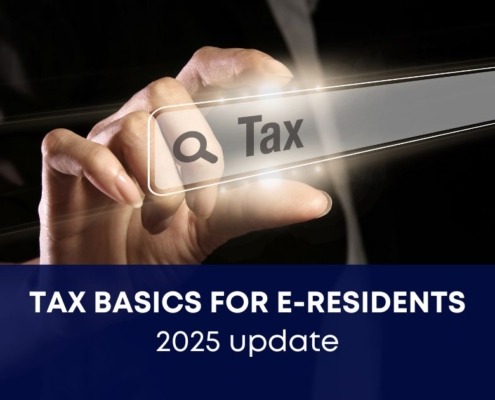What are the Pros and Cons of the Estonian e-Residency Program?
Estonia’s e-Residency program has revolutionized the way digital businesses can be established within a global market. For the first time ever, it has enabled businesses physically located outside of Estonia to operate the business remotely from anywhere in the world whilst gaining access to the same benefits and services as businesses located inside Estonia. It is easy to see why around 120,000 people from 170+ countries worldwide have signed up!
At Silva Hunt, our values are built on honesty and transparency. This means we provide balanced, unbiased, and expert advice to business owners and entrepreneurs wishing to set up a business in Estonia. As the premium e-Residency service provider in Estonia, we are an advocate for e-Residency, but we also recognize that the Estonian e-Residency program is not a suitable option for everyone due to some of the potential limitations and restrictions. Here, we delve into the pros and cons of the e-Residency program:
Cons of the Estonian e-Residency Program:
Con 1: Little Business Value for Those Without International Clients / Business
If you don’t have international clients and plan to remain in your home country serving local clients, the e-Residency program might not offer significant added value. However, if you are looking to set up a holding company, the picture might be different. Read more when it makes sense to set up a holding company in Estonia.
Con 2: e-Residency is Not a Work Permit or Visa
While businesses registered under the program are classed as residents in Estonia, this does not grant physical residency, the right to live in Estonia, or any other EU member state. Moreover, it does not provide Estonian citizenship or eligibility for social rights in Estonia.
Con 3: It is not a Tax Residency for Estonia
While the program simplifies tax management with its efficient e-services, it’s crucial to understand your personal tax obligations and you still need to comply with the relevant tax regulations in your country of residence. This includes being aware of CFC and PE rules. At Silva Hunt, we recommend consulting our expert tax advisors for comprehensive tax advice when setting up a business in Estonia.
While some may not view the mentioned limitations as significant drawbacks, it’s crucial to recognize what the program can and cannot offer. Before making a decision, thoroughly understand the scope and boundaries of e-Residency to determine if it aligns with your business objectives.
Pros of the Estonian e-Residency Program:
Pro 1: Streamlined Online Business Management
E-Residency allows you to establish and operate a business in Estonia entirely online, reducing paperwork and bureaucracy.
Pro 2: Simplified Banking and Payment Processing
Benefit from Estonian digital business banking services, making financial management more straightforward and efficient. READ MORE HERE
Pro 3: Access to the European Union Single Market
E-Residency offers access to the EU single market, especially beneficial for businesses outside the EU, like those in the UK post-Brexit.
Pro 4: E-Notary for Property Ownership
With e-Residency you also get access to e-Notary. While certain services like property ownership in Estonia require traditional notary services, e-Residents can utilize e-notary services with their e-Residency card. As of 2025, there is only one service you cannot do online: you cannot get divorced.
Pro 5: Remote Access to Digital Services
Gain access to a wide range of digital services offered by the Estonian government, including online banking, e-signatures, tax filing, and more.
In conclusion, while there are numerous benefits to the e-Residency program, it’s essential to weigh them against the potential drawbacks. Our team at Silva Hunt is here to guide you in determining if e-Residency in Estonia aligns with your business goals. Contact us for more information.











 Schedule a call
Schedule a call
 Send a message
Send a message